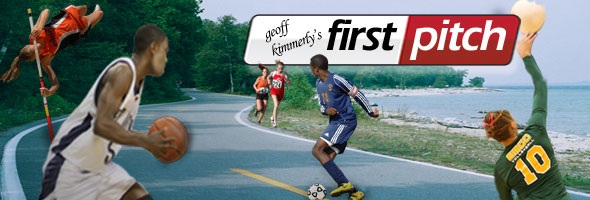
Things change; lessons are the same
February 29, 2012
Let's start with the obvious: High school sports have evolved a bit since 1927.
But the MHSAA Bulletin from March of that year -- dug up by one of our directors on another research pursuit -- reminds us how some of our challenges remain the same.
Below are a few excerpts from the section titled "Baseball and Sportsmanship." Keep in mind, baseball was the football and basketball of the first half of the 1900s. The 1927 New York Yankees arguably were the greatest baseball team of all-time, finishing 110-44 thanks to Babe Ruth, Lou Gehrig and others.
Those names alone make us think in a historical context -- which makes the parallel between today and the following that much more intriguing:
Baseball games furnish a difficult problem to schools in the matter of sportsmanship, spectator control and their education.
Many more people are familiar with the game of baseball and its rules than is true of either football or basketball. Consequently, they feel even more qualified to criticize.
In many places, absence of seating facilities bring the spectators into close proximity to players with the result that criticism of players and of the official and sometimes abusive remarks to the visiting team can occur. No school can hope to improve this situation by ignoring it.
The MHSAA Bulletin went on to cite suggestions for improvement that had been published by the Delaware association. Again, a sampling:
Treat the visiting team as guests, not as deadly enemies. Small youngsters often offend through ignorance. Educate them along this line.
Fair and impartial applause of good plays by either side should be encouraged in the student body, and the outside fans will soon fall in line.
"Razzing" or "riding" visiting players is poor sportsmanship.
Caution your boys to pay no attention to the "grandstand experts" who feel it their duty to offer suggestions as to the work of the team. They can sometimes do more harm in an hour than can be overcome in days of practice.
And a final note from the 1927 MHSAA on the subject:
An athletic contest properly staged and handled creates a favorable impression on the part of visitors toward your school and community. A game that deteriorates into a backyard squabble hurts not only the school and its executives, but the town as well.

Rare Occasions
February 28, 2017
On the rare occasions when a high school athletic event in Michigan is interrupted or ended prematurely because of a breakdown in proper sportsmanship, I remind myself that there were hundreds of other high school athletic contests that same day that were conducted with good sportsmanship and without problems. It is because bad incidents are so very rare that they make news.
The Michigan High School Athletic Association doesn't assign officials to administer any regular-season contests; but we do receive reports from officials, school administrators and many others when problems occur, some offering opinions that go viral with incomplete information and snap judgments.
In a recent case, three veteran and respected officials were assigned to a league crossover game between two talented basketball teams. The atmosphere was poisoned by a public address announcer who was subsequently removed from that role by the school district after he not only performed those duties in an inflammatory and biased way, but also pursued and provoked one of the officials who had halted the game after an object was hurled from the crowd. That official worsened the situation when he pushed this individual; and the subsequent behavior of host team members and spectators was deplorable and dangerous.
The official is not the villain here, but an individual human being who has enjoyed the avocation of sports officiating for many years with good success and support. I'm sure he wishes he could take back the split second of his fear or anger that has been shown on video worldwide.
The host school has not been blind to several things it could do, in addition to appointing a different PA announcer, to improve the atmosphere of its athletic events; and it has already demonstrated its intent to provide a better experience for all involved in the future. It is contributing to the many thousands of athletic contests that build character in school sports for every one contest that lets us down.

